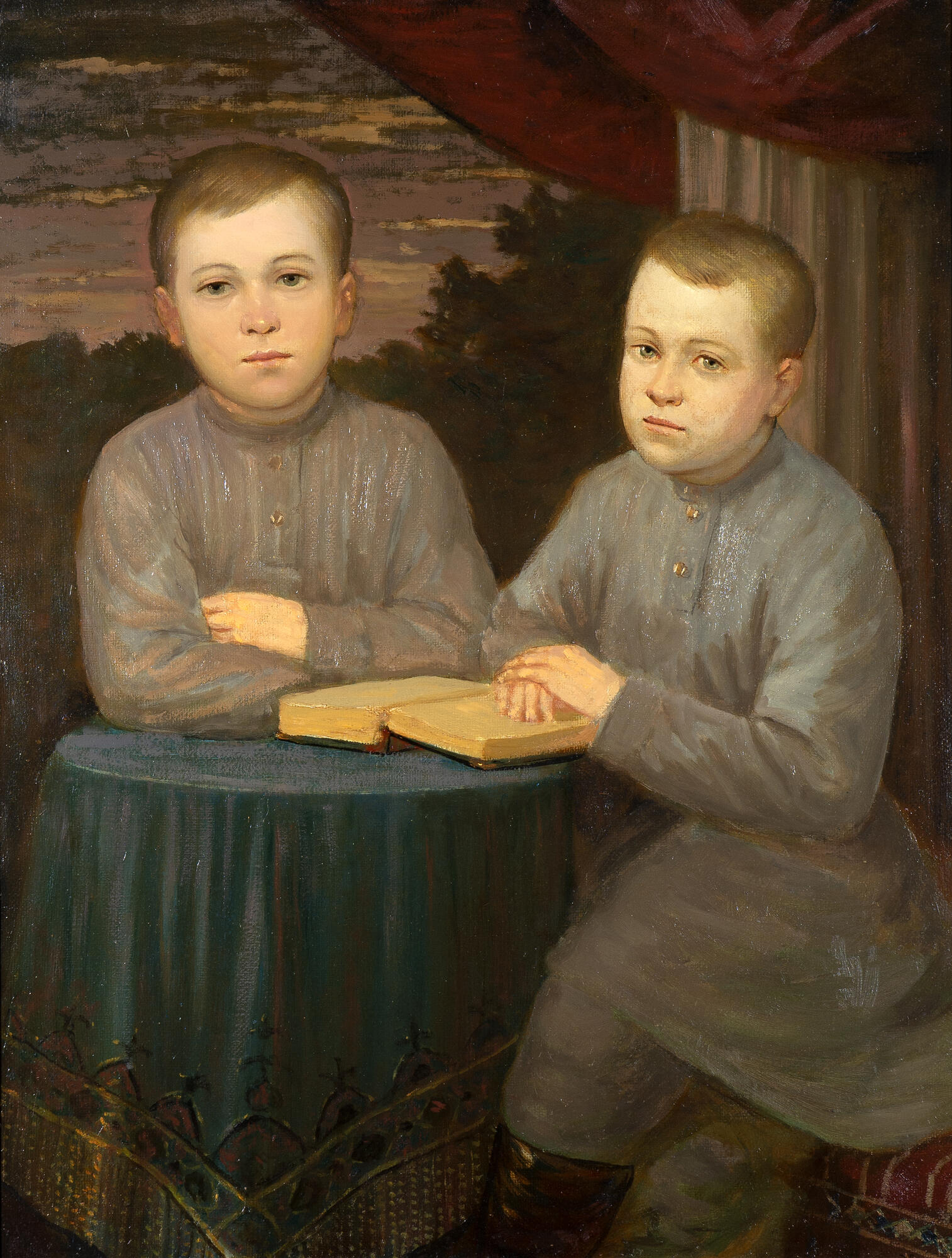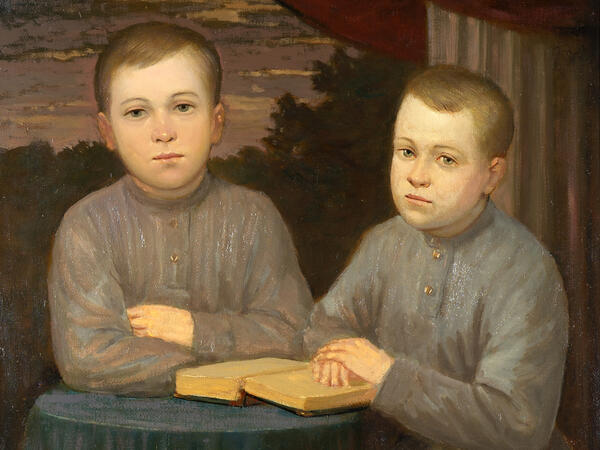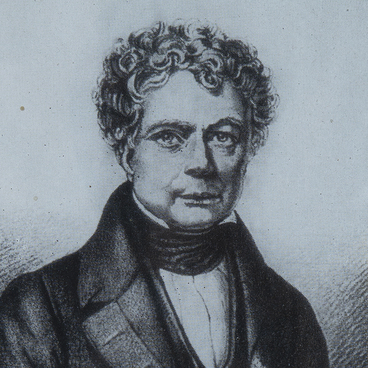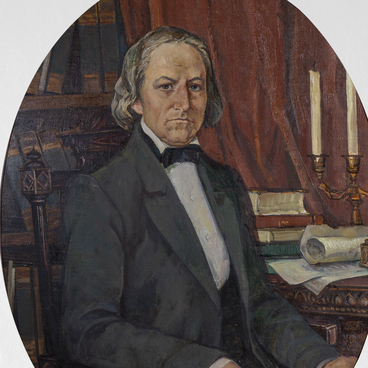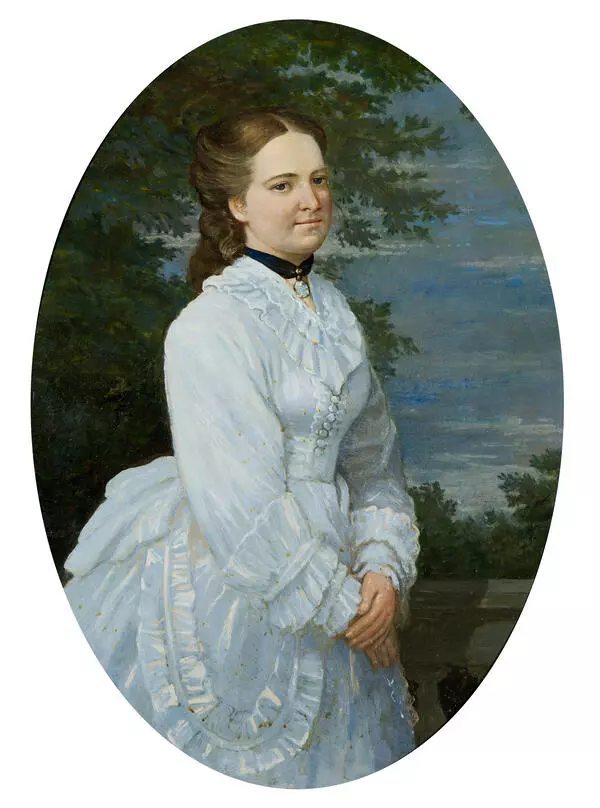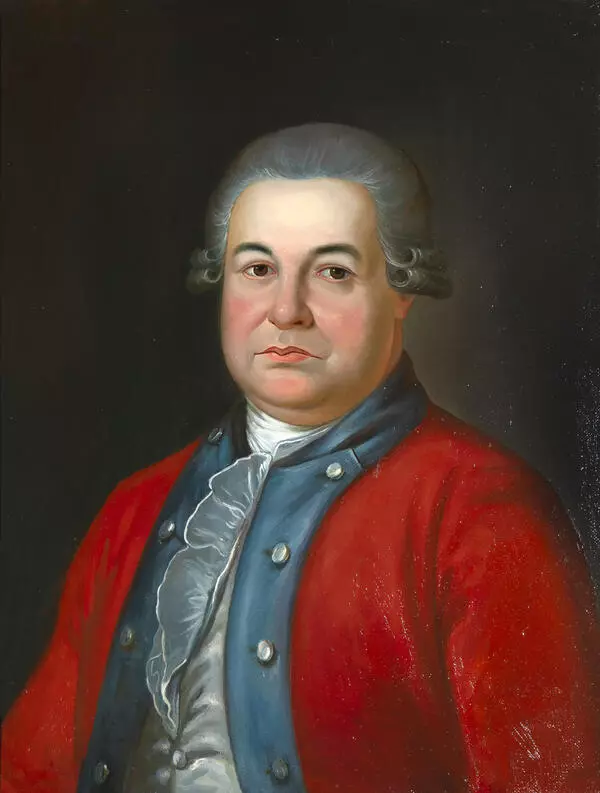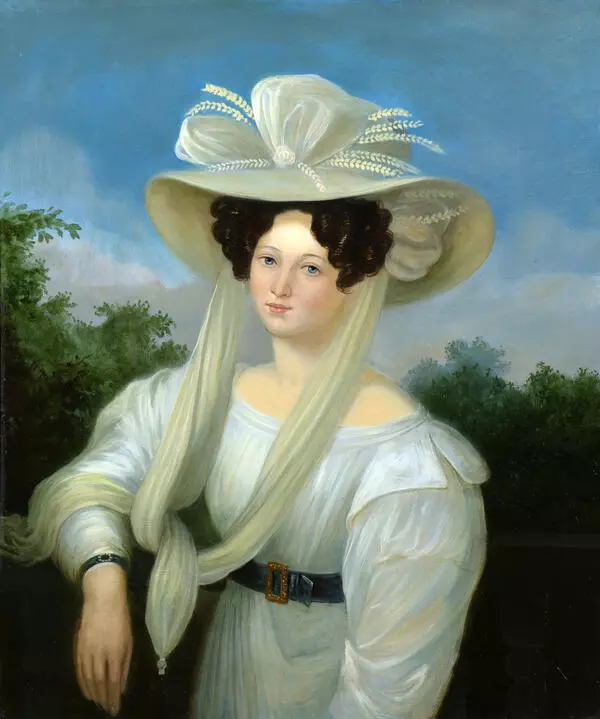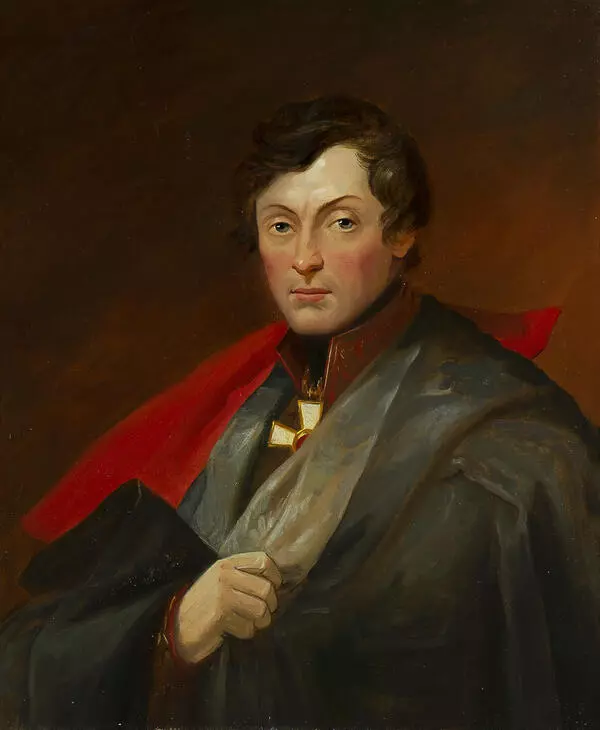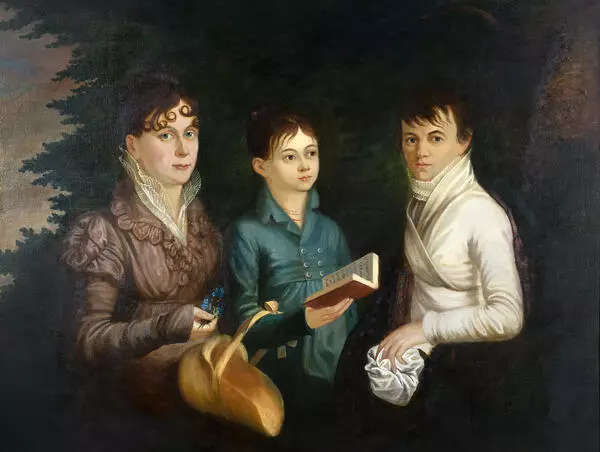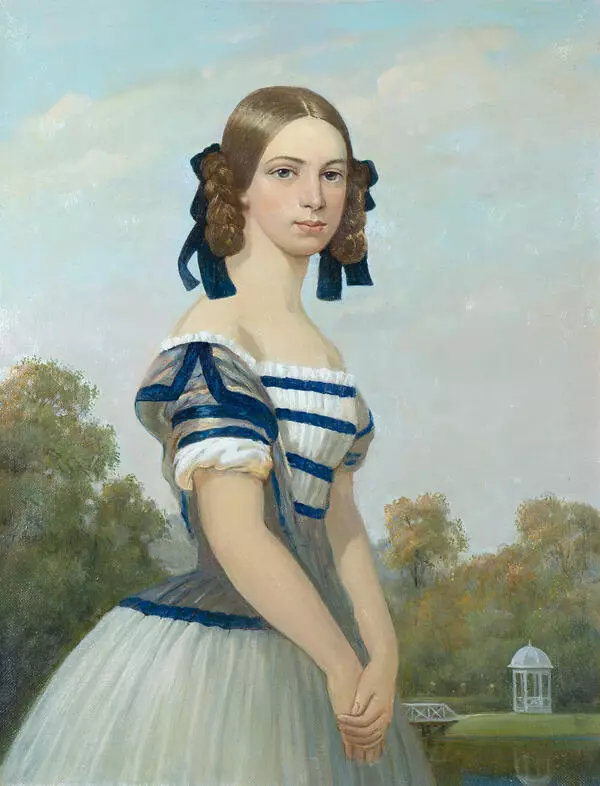The painting features Fyodor Tyutchev’s sons. The elder, Dmitry was born in Munich, where the poet served in the Russian diplomatic mission. His godfather was Dmitry Severin, the Russian envoy in Munich, so the boy was named after him.
He suffered from a serious heart disease, so he studied in private family boarding schools in favorable conditions. Dmitry was supposed to inherit the family estate in Ovstug. He was married to Olga Melnikova, who came from the family of an adviser to the court stables office. Dmitry died on June 11, 1870 and was buried in St. Petersburg. After his death, the fate of the estate in Ovstug was in danger. When Fyodor Tyutchev himself died in 1873, the poet’s heirs left the house, taking away from the estate everything that was of value to them. The Ovstug estate was forgotten and gradually collapsed. Only in the 1960s did the gradual restoration of the manor house and the adjoining park begin.
The second son of Fyodor Tyutchev, Ivan graduated from the Imperial School of Law in St. Petersburg in 1867 and practiced law in Smolensk. In 1875, he became a Justice of the Peace in the Dmitrovsky district of the Moscow governorate, and from the 1890s — an honorary Justice of the Peace of the city of Moscow. He is also known as the publisher of his father’s poems. In 1868, together with the poet’s son-in-law and first biographer Ivan Aksakov and his sister Daria Tyutcheva, he prepared a lot of materials for publication.
In addition, Ivan Tyutchev collected the richest legal library, which consisted of more than 700 volumes. In 1869, he married Olga Putyata and settled with her in the village of Muranovo, where the Fyodor Tyutchev Museum is now located. Subsequently, Ivan Tyutchev was destined to become the heir of all his relatives who lived in Moscow, St. Petersburg, Oryol and Vladimir governarates. His mother, Ernestina Tyutcheva, wrote,
He suffered from a serious heart disease, so he studied in private family boarding schools in favorable conditions. Dmitry was supposed to inherit the family estate in Ovstug. He was married to Olga Melnikova, who came from the family of an adviser to the court stables office. Dmitry died on June 11, 1870 and was buried in St. Petersburg. After his death, the fate of the estate in Ovstug was in danger. When Fyodor Tyutchev himself died in 1873, the poet’s heirs left the house, taking away from the estate everything that was of value to them. The Ovstug estate was forgotten and gradually collapsed. Only in the 1960s did the gradual restoration of the manor house and the adjoining park begin.
The second son of Fyodor Tyutchev, Ivan graduated from the Imperial School of Law in St. Petersburg in 1867 and practiced law in Smolensk. In 1875, he became a Justice of the Peace in the Dmitrovsky district of the Moscow governorate, and from the 1890s — an honorary Justice of the Peace of the city of Moscow. He is also known as the publisher of his father’s poems. In 1868, together with the poet’s son-in-law and first biographer Ivan Aksakov and his sister Daria Tyutcheva, he prepared a lot of materials for publication.
In addition, Ivan Tyutchev collected the richest legal library, which consisted of more than 700 volumes. In 1869, he married Olga Putyata and settled with her in the village of Muranovo, where the Fyodor Tyutchev Museum is now located. Subsequently, Ivan Tyutchev was destined to become the heir of all his relatives who lived in Moscow, St. Petersburg, Oryol and Vladimir governarates. His mother, Ernestina Tyutcheva, wrote,
